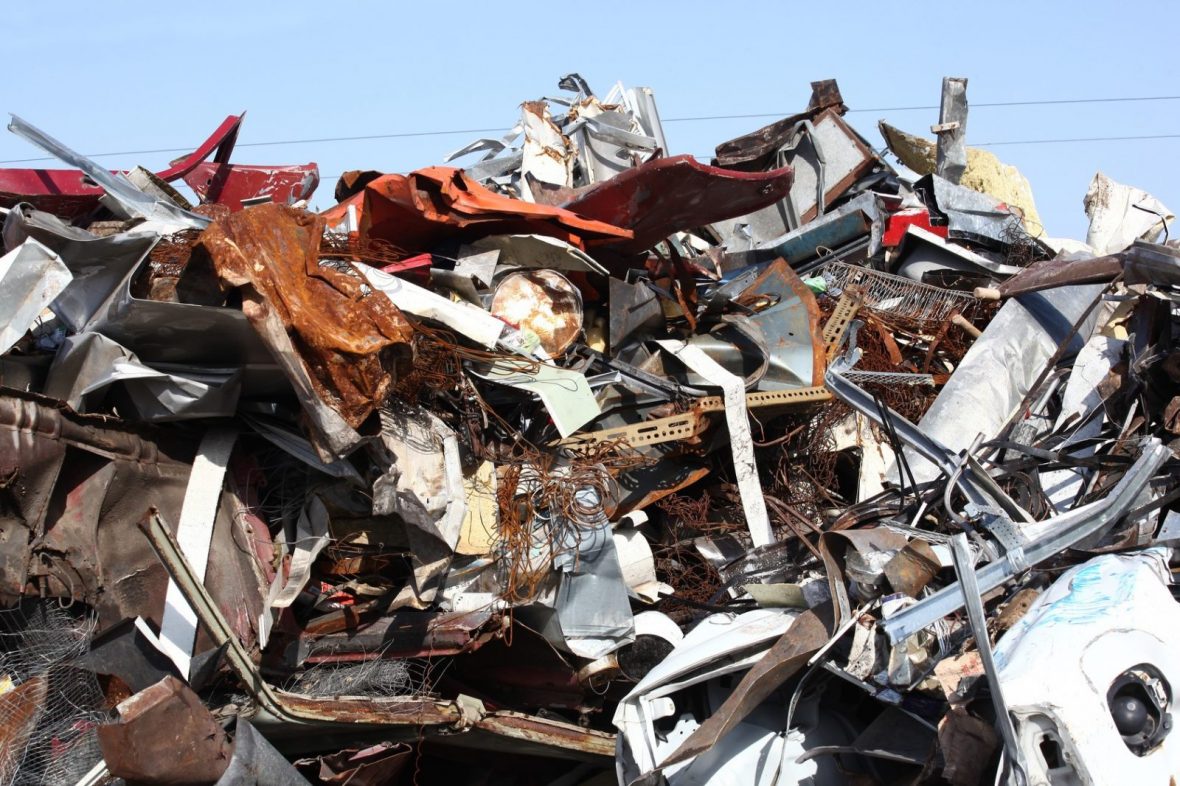Following China’s announcement that it would become much stricter about recycled scrap material allowed into the country effective January 1, 2018, the massive U.S. recycling industry has already felt the blow. The ban has impacted waste haulers, taxpayers, and community members who pride themselves in recycling responsibly, yet whom now watch their blue box material being hauled to the landfill.

As China turns off the tap on scrap imports from around the world and with a lack of residual paper and plastic processing capacity in the U.S. to handle the rejected material, more and more previously saleable scrap is being dispatched to landfills. Headlines such as "Recycling Chaos In U.S. As China Bans ‘Foreign Waste" and "Recycling Heads to the Dump as China Gets Picky About Waste" have become increasingly frequent.
China is buried in its own environmental challenges. As a result, it has banned the import of 24 different recovered materials and drastically tightened its tolerance for garbage in accepted commodities. As a report in Bloomberg notes:
Part of the problem is that too much of what China was processing – from discarded paper to old appliances and cars – contained materials that weren’t recyclable. So the country is proposing tighter standards that would limit the so-called contaminants to no more than 0.5 percent. That’s a level of purity that would be "impossible to achieve," according to the Institute of Scrap Recycling Industries, an industry group based in Washington, D.C.
The disruption to the China scrap material trade is of immense importance to the American economy. In 2016, the U.S exported scrap commodities valued at $16.5 billion to 155 countries. China is by far the largest trading partner, accounting for over $5 billion or almost one-third of that total. By comparison, the two most significant U.S. exports to China last year were miscellaneous grain, seeds, and soybeans as well as aircraft, each export with a value of $15 billion.
The economic disruption caused by China’s policy change, however, creates a new urgency to explore opportunities for waste reduction and local processing. Here are some of those glimmers of hope, as reported in recent press coverage.
One way to avoid trash is to pursue a Zero Waste strategy that does not require export of waste. Many American companies have strived to achieve Zero to Landfill objectives, although the China ban may force some companies to modify their approach regarding specific materials. GM and Ford and other automakers have been very visible proponents of Zero Waste. As a recent greenbiz.com article notes:
Subaru of Indiana Automotive (SIA), the automaker’s only U.S. plant, has been waste-free for 13 years, saving $1 to $2 million annually. It ships no waste overseas, said SIA Executive Vice President Tom Easterday, but negotiates with suppliers to use reusable containers and absorbs faulty products back into production.
With China no longer an eager market for the processing of U.S. scrap, there is a new urgency to repatriate those operations. Such a move would provide good news for U.S. companies urgently trying to increase their use of recycled packaging content. "An optimist might see this as an opportunity for improving quality and keeping recycled materials closer to home for a lower overall environmental footprint," a P&G executive told GreenBiz. A robust domestic recycling industry could generate over half a trillion dollars, save cities as much as $20 billion, and cut greenhouse gas emissions by 500 billion tons of CO2, according to research from Closed Loop Partners.
China has forced the scrap industry’s hand concerning scrap contaminants. There will be less tolerance for recycling inaccuracies that compromise the quality of scrap material. At curbside, residents are already feeling pressure to do a better job in sorting their recycled material, and more of the same can be anticipated. At the materials recovery facility, look for increasing investment in high tech recycling equipment which will generate a consistent, more top-quality output. Robotic arms, optical sensors, and other technologies will help improve the quality of recycled material.
"While packaging recyclability is laudable, the recycling process requires additional energy," notes Peter Hays, Consumer Analyst at GlobalData. "A more environmentally-friendly packaging format might use recyclable materials while also reducing unnecessary packaging. Better still would be offering consumers reusable packaging."
Reusable packaging has been proven through exhaustive Life Cycle Analysis studies to be a more environmentally favorable approach than corrugated for many packaging applications, such as RPCs for perishable products. Reusables can dramatically reduce solid waste and offer a host of sustainability advantages such as reduced carbon footprint and greenhouse gas emissions. And in a world where paper-based packaging scrap is increasingly unwelcome, it makes more sense than ever to switch to reusable packaging.
Stay up to date
Want the latest fresh food packaging industry knowledge delivered straight to your inbox? Subscribe to our newsletter and get the latest news, trends, articles and more!
